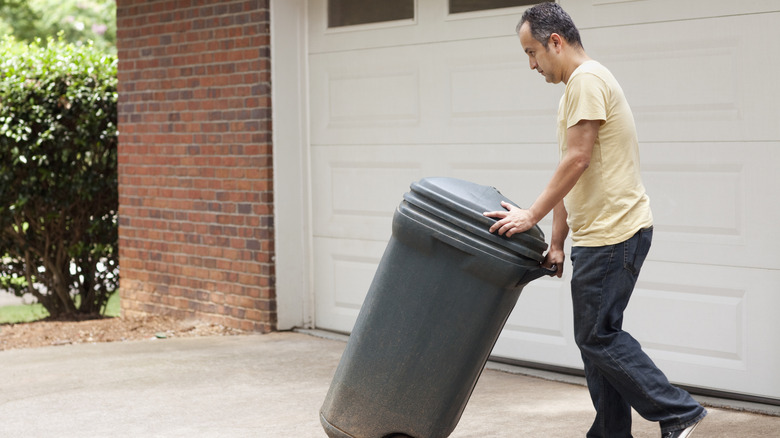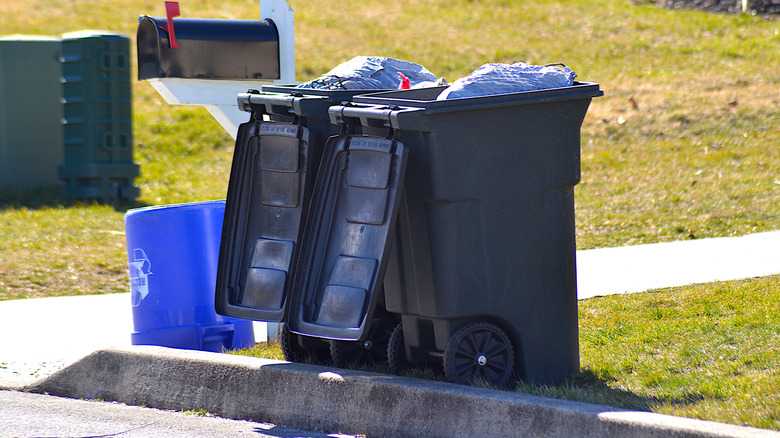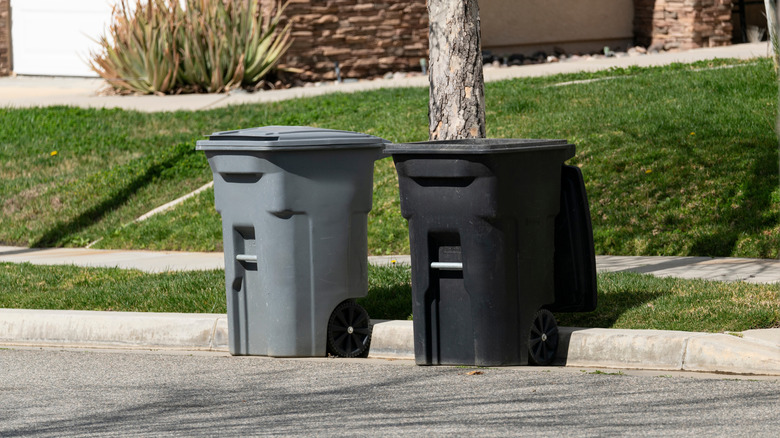What The Law Says About Where You Can Place Your Trash Cans
Every household generates a substantial amount of trash per week. Typically, you'll have one or two days a week where you can unload this waste by moving your bin to the curb. However, just because you have an unsightly garbage can in your yard doesn't mean you can just put it anywhere. When it comes to what the law says about where you can place your trash can, you must review local rules and codes, with your curb being the best place to set it.
Unfortunately, there is no universal law governing waste receptacle placement. Instead, every town, city, and even county has its own set of rules and laws. In some instances, the local community, waste management company, or HOA may have additional regulations to follow. If you live outside the city limits, you must contact private disposal services to arrange for pickup on their route. From there, you must follow their rules. These regulations typically include how long your bin can remain on the curb before/after pickup, how many cans each home is allowed, and where they need to be placed. Many waste management companies now use automation to pick up trash cans, therefore, the placement of the cans is strictly regulated. For instance, your cans may need to be a specific distance from the curb, with several feet between them to allow space for the mechanized arms. Once you are familiar with the regulations, remember that your trash will be collected on a public street, so you can't legally use your cans to save a parking spot.
Check local rules and codes
Before placing bins outside, check local rules and codes by reviewing your specific trash company's website. There are typically guidelines specifying the type of waste you put out, whether it should be bagged, and where you should set it. Your area may issue municipal cans that each resident needs to use, or, if you have to provide your own, there will be strict size requirements.
When in doubt, the curb by your house is usually the best location for trash cans. Do not try to leave them on sidewalks because you can hinder pedestrians walking, creating a safety hazard, and risk receiving a notice from your local area. Do not place your trash can in the middle of the road (whether you put it there deliberately, or it fell over), because it becomes a roadside hazard. Therefore, prevent the situation by stopping your trash cans from tipping over in the wind with bungee cords.
You'll also need to check Homeowners Association (HOA) rules, as some neighborhoods prohibit bins from being left outside too long. Besides being unsightly, placing your can out too early before pickup could be a security risk, allowing anyone the chance to rifle through your personal papers and steal your identity. When you move into a neighborhood, you should have received a document that lists out these rules. Refusing to follow these regulations could lead to costly fines.
You can't use your trash to save your spot
A trash can cannot legally save a spot on a public street. The city or town owns these streets; therefore, you must follow your area's laws. In general, some places may already have rules in place that limit how long a bin can remain on the public street; for example, some counties in California only allow it to be out for up to 36 hours. This means if you head out of town on trash day, you need to arrange with a friend or neighbor to bring your cans in for you. However, some areas, such as Boston, allow you to save your snow-shoveled parking spot with a bin on snow emergency days. Once the container is off the road, it's best to hide the garbage cans on your property if you want to help increase curb appeal, such as placing them behind a wooden enclosure, shed, or inside a garage.
If a neighbor's trash receptacle is blocking your driveway, you can move it out of the way, as it is typically not legal for them to block access to your home. The lines are murkier when it comes to cans blocking prime parking spaces in the street on trash day. If you find your personal driveway is constantly being blocked, and a friendly chat with your neighbor hasn't helped, you may need to contact law enforcement. In some areas, the person may even be sent a hefty fine, especially if the can is in a public parking spot.


